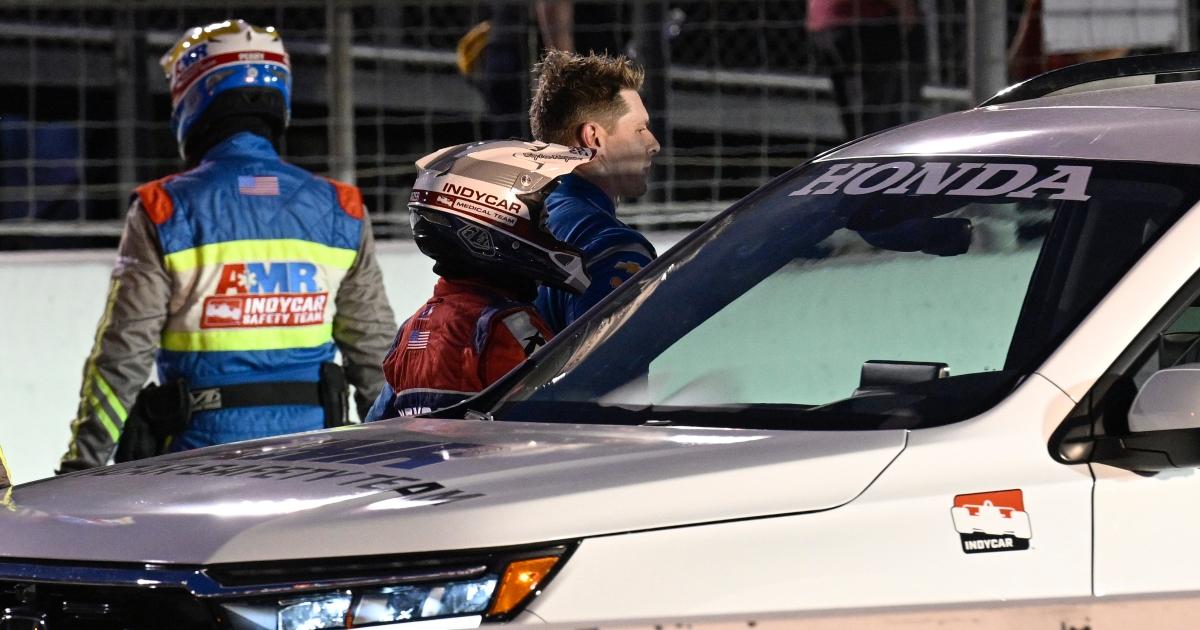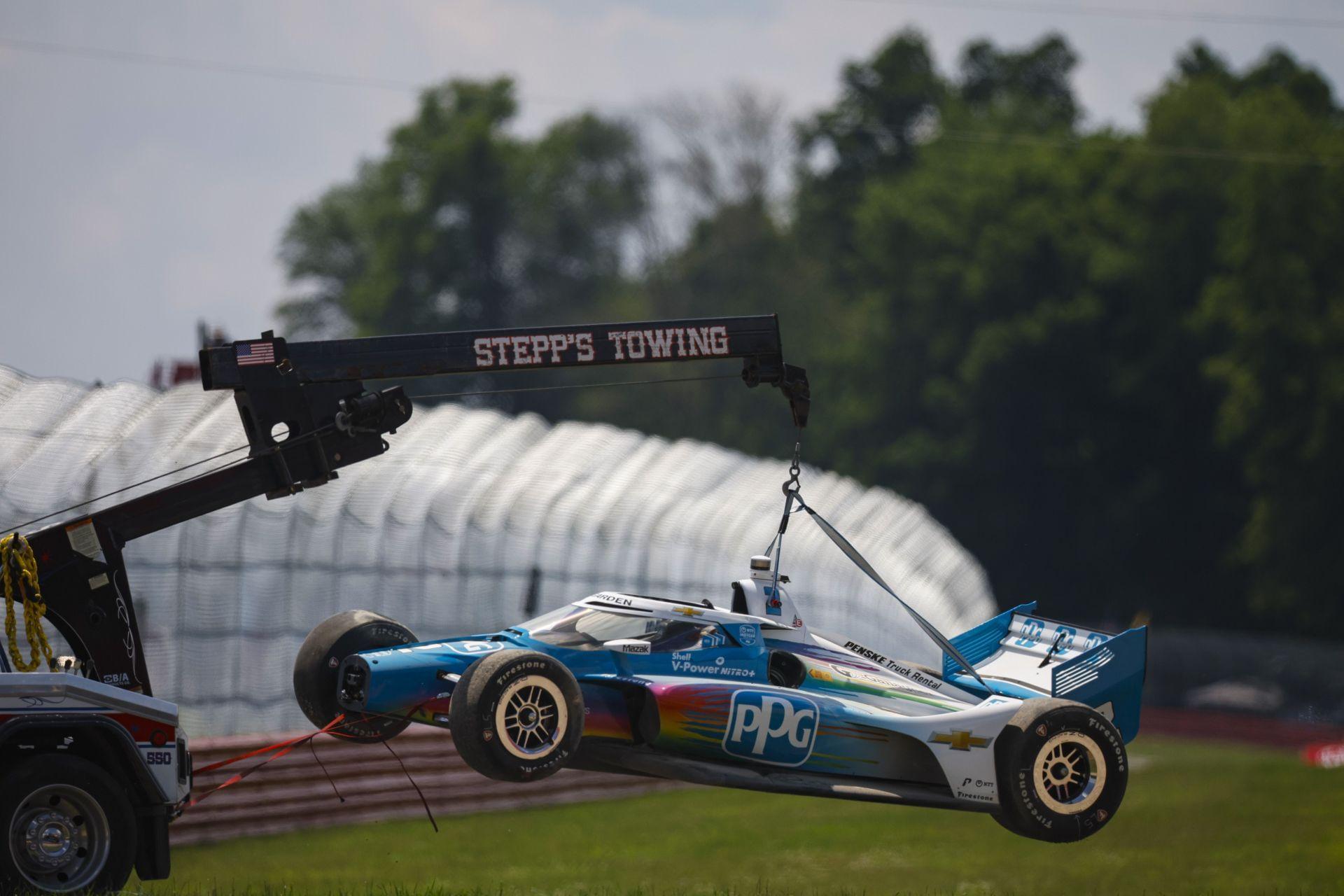“IndyCar’s Nightmare: Josef Newgarden Reveals Dire State of IndyCar’s Police Force and Major Concerns About Driving Standards”

In a season marked by controversy and high-stakes drama, IndyCar star Josef Newgarden has brought to light significant concerns about the series’ officiating and driving standards, painting a troubling picture of what he calls IndyCar’s “nightmare.” The two-time IndyCar Series champion and back-to-back Indianapolis 500 winner has faced a tumultuous 2025 season, and his recent comments have sparked intense debate within the motorsport community. Newgarden’s revelations center on the perceived inconsistencies in IndyCar’s rule enforcement and the declining standards of on-track behavior, issues that have plagued the series and raised questions about its future.

Newgarden’s 2025 season has been anything but smooth. Despite his storied career, which includes 31 career wins and two championships, the Team Penske driver endured a series of setbacks that culminated in a winless streak until the season finale at Nashville Superspeedway. The most significant blow came during the Indianapolis 500, where Newgarden and teammate Will Power were penalized for modifying spec parts, specifically filling seams in their cars’ attenuators, which IndyCar deemed a “Body Fit” violation. This infraction sent both drivers to the back of the field, derailing their chances of contending for the victory. The incident, coupled with a prior push-to-pass scandal at St. Petersburg, where Newgarden’s win was stripped due to illegal use of the system, has fueled his frustration with IndyCar’s officiating process.

The push-to-pass controversy, in particular, was a low point for Newgarden and Team Penske. IndyCar discovered that a software glitch allowed Penske drivers to use push-to-pass during starts and restarts, a clear violation of the rules. Newgarden, in an emotional press conference, accepted responsibility but insisted he believed a rule change had occurred, a claim met with skepticism by fans and competitors alike. The fallout was severe: Newgarden and teammate Scott McLaughlin were disqualified, and the team faced fines and suspensions. The incident not only tarnished Newgarden’s reputation but also highlighted broader issues with IndyCar’s ability to monitor and enforce its regulations effectively.
Newgarden’s concerns extend beyond his personal experiences to the broader state of IndyCar’s “police force”—the officials responsible for maintaining fair competition. He has publicly questioned the consistency and transparency of penalty decisions, pointing to the Indy 500 incident as an example of overly harsh measures that fail to account for the competitive nature of the sport. “It’s a clear indication to the paddock that we take this seriously,” IndyCar President Doug Boles stated at the time, but Newgarden argues that such penalties often lack clarity and disproportionately affect certain teams. The fact that Roger Penske, the series owner, also owns Newgarden’s team adds a layer of complexity, with some competitors questioning whether conflicts of interest influence officiating decisions.
Driving standards have also come under scrutiny, with Newgarden highlighting incidents that reflect a decline in on-track discipline. One such moment occurred at Gateway, where Newgarden’s car flipped upside down after contact with Louis Foster, who spun into the wall and blocked Newgarden’s path. The crash, while not fatal thanks to IndyCar’s robust safety measures, underscored the risks of aggressive driving and poor situational awareness. Newgarden has called for stricter enforcement of driving standards, particularly on ovals, where high speeds amplify the consequences of errors. He referenced the banned “Dragon” maneuver from his 2023 Indy 500 win, which IndyCar outlawed in 2024 to prevent dangerous defensive moves, as a step in the right direction but insufficient to address broader issues.
The reaction from the IndyCar community has been mixed. Some, like Conor Daly, have praised Newgarden’s resilience and dedication, noting his ability to rebound with a win at Nashville despite a “nightmare” season. Others, however, view his criticisms as self-serving, given Team Penske’s history of pushing rule boundaries. Fans on social media platforms like X have expressed frustration, with some labeling Newgarden a “villain” for his role in the push-to-pass scandal, while others defend his candor in addressing systemic issues. The debate has highlighted a divide between those who see IndyCar’s strict policing as necessary and those who believe it stifles competition.
As IndyCar prepares for the 2026 season, Newgarden’s comments serve as a wake-up call. The series must balance its commitment to safety and fairness with the need to foster exciting, competitive racing. Improving officiating transparency, refining rule enforcement, and addressing driving standards are critical steps to restoring trust. For Newgarden, the path forward involves not only rebuilding his reputation but also advocating for a series that upholds the integrity of its competition. IndyCar’s “nightmare” may be a turning point, but only if the series listens to its stars and acts decisively to address their concerns.